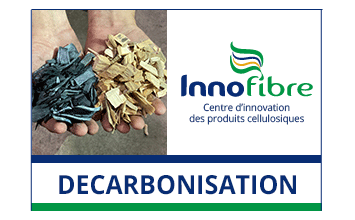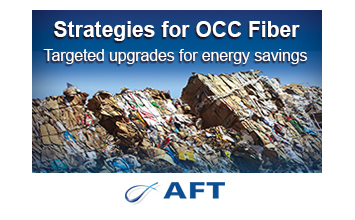The Confederation of Paper Industries (CPI) has profound concerns about proposed amendments to the EU Packaging and Packaging Waste Regulation (PPWR) that could potentially lead to a staggering 12 million-tonne surge in plastic consumption at the expense of the circular economy and decarbonisation initiatives.
CPI calls upon European decision makers to stand firm and support the cardboard exemptions in the PPWR. This is crucial to support the UK and wider European economy, protect local jobs, and promote sustainable packaging solutions that have been the cornerstone of the industry's environmental commitments.
The paper-based industries firmly align with the European Union's ambitious goals of climate neutrality and driving transformative change across the economy. Corrugated cardboard plays a critical role in packaging, securing and delivering 75% of goods across Europe. An impressive European recycling rate of 82% ensures that packaging can be recycled into new cardboard boxes repeatedly, resulting in a remarkable recycled content of approximately 89%. This has established cardboard packaging as a pioneer of the circular economy, thanks to its renewable, recyclable, biodegradable nature, as well as industry-leading decarbonisation efforts. UK papermaking has already cut its carbon emissions by over 70% since 1990.
CPI supports the existing exemptions that apply to cardboard in relation to reuse targets for transport packaging. These exemptions recognise the sustainability of cardboard and the adverse consequences that would arise if cardboard were included under the scope of reuse targets. They also account for the need to regulate different packaging materials uniquely, steering the PPWR away from a one-size-fits-all approach.
However, the proposed removal of these exemptions, currently under discussion in the EU, presents a significant threat to the industry's sustainable track record.
CPI is deeply concerned that applying reuse targets to corrugated cardboard transport packaging would be counterproductive, hindering the Regulation's ability to improve the environmental impacts of packaging. Furthermore, such a move could have existential consequences for the cardboard industry. Reuse targets for transport packaging inherently favour plastic packaging over recyclable materials like cardboard, which could flood the market with billions of harder to recycle plastic crates. This will also increase the EU's reliance on fossil resources, worsening the environmental impact of packaging and undermining the primary objective of the PPWR. Reuse targets are also inherently anti-innovation, since they act as a barrier to the introduction of new, better, packaging formats.
Despite being an EU policy, these Regulations could have far-reaching effects, including in the UK, where a well-functioning paper-based industry employs 56,000 people directly and an additional 93,000 indirectly, generating a total turnover of £11.5 billion.
Initial estimates suggest that removing the exemption for cardboard could result in an additional 2.7 billion plastic crates, weighing 4 million tonnes, entering the market by 2030. Cleaning just half of these reusable crates would consume a staggering 5 billion litres of water, equivalent to 1.25 Wembley Stadiums filled with water. By 2040, this figure could rise to 8.1 billion crates, weighing 12 million tonnes - nearly two and a half years' worth of the UK's total plastic consumption - necessitating 16 billion litres of water.
Unlike plastic, cardboard is fully renewable, highly recycled, and biodegradable. Moreover, the cardboard industry has its own ambitious decarbonisation roadmap, which makes additional reuse obligations unnecessary.
CPI and the European corrugated cardboard industry are calling on the EU to consider the broader environmental implications and the detrimental impact on local economies and jobs before proceeding with any changes to the PPWR.
Andrew Large, Director General of CPI said, “A one-size-fits-all approach to packaging regulations risks undermining the well-functioning paper packaging circular economy in favour of an explosion in the numbers of fossil oil-based plastic crates and unproven reuse systems. The revisions to PPWR will have a significant effect on consumers across Europe, and CPI urges the EU to support existing well known and well used recycling systems, such as those for cardboard.”
Confederation of Paper Industries (CPI):
CPI is the leading trade association representing the UK’s Paper-based Industries, comprising paper and board manufacturers and converters, corrugated cardboard packaging producers, makers of soft tissue papers, and collectors of paper for recycling.
CPI represents an industry with an aggregate annual turnover of £11.5 billion, with 56,000 direct and a further 93,000 indirect employees.
Notes to Editors:
CPI is concerned primarily by the potential removal of the cardboard exemptions under reuse provisions in the PPWR, specifically in Articles 26, paragraphs 7, 10, 12 and 13.
Figures on the additional crates, plastic and water usage.
A peer-reviewed life cycle analysis study shows that recyclable cardboard trays outperform reusable plastics in ten out of fifteen impact categories, including climate change. Further, reusable plastic trays must be reused at least 63 times to be environmentally sustainable.
Summary report
Detailed report
Source: CPI













